Introduction
Hey there, rabbit enthusiasts! Are you curious about the nutritional benefits of turnips for your furry friends?
In this comprehensive guide, we’ll dive into the world of turnips and explore just how beneficial they are for rabbits. From their vitamin-packed bulbs to their fiber-rich leaves, turnips offer a wide range of nutritional benefits for our floppy-eared companions.
Turnips, those versatile root vegetables that belong to the Brassicaceae family, are known for their crisp texture and slightly sweet taste. But did you know that they are also a powerhouse of essential vitamins, minerals, and fiber?
Turnips are jam-packed with vitamin C, which is crucial for a rabbit’s immune system. Not to mention, they are a great source of dietary fiber, promoting healthy digestion and preventing gastrointestinal issues.
But the benefits of turnips don’t stop there! They also provide vital vitamins like K and A, which help with blood clotting, vision, and immune health.
Now, you might be wondering how to incorporate turnips into your rabbit’s diet effectively. Well, fear not!
Remember, variety is key, so it’s important to offer a mix of vegetables alongside turnips to ensure a balanced diet.
So, get ready to discover the nutritional superpowers of turnips and how they can benefit your furry friends. With the right approach, you’ll soon be adding these delicious and nutritious root vegetables to your rabbit’s menu.
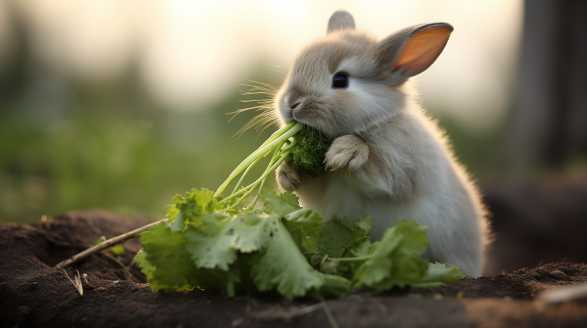
Key Takeaways
- Turnips are a nutritious addition to a rabbit’s diet, offering vitamins, minerals, and fiber.
- They are a great source of vitamin C, which is crucial for a rabbit’s immune system.
- Turnips can help promote healthy digestion and prevent gastrointestinal issues in rabbits.
- When introducing turnips, start with small quantities and monitor your rabbit’s response.
- Wash turnips thoroughly before feeding them to your rabbit.
- Turnips can be served as occasional treats or mixed with other vegetables for a balanced meal.
- It’s important to consult a veterinarian if you have any concerns about your rabbit’s diet or health.
- Serving size depends on the rabbit’s size and weight, with smaller breeds requiring smaller amounts.
- Overfeeding or introducing turnips too quickly can lead to digestive upset in rabbits.
- It’s important to choose organic turnips, when possible, to minimize exposure to pesticides.
- Turnips can be fed to baby rabbits, but it’s best to wait until they are at least three months old.
- Turnip leaves are generally healthier for rabbits than the bulbs, as they provide more fiber and essential vitamins.
- Variety in a rabbit’s diet is important, so it’s best to offer a mix of different vegetables alongside turnips.
- It’s crucial to observe your rabbit’s response to turnips and monitor for any signs of allergies or sensitivities.
- Moderation and a balanced diet are key for a rabbit’s overall health and well-being.
- Always consult with a veterinarian for personalized advice tailored to your rabbit’s specific needs.
A Comprehensive Guide: Nutritional Benefits of Turnips for Rabbits
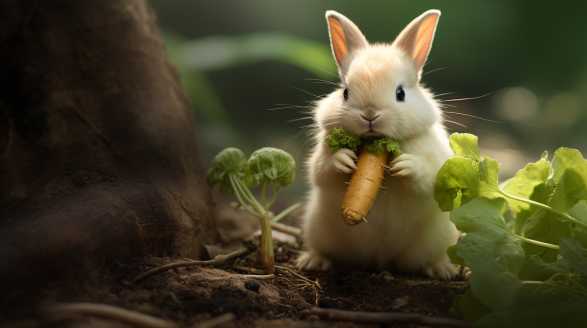
As a rabbit enthusiast, I have always been intrigued by the different types of food that can benefit my furry friends. One vegetable that stands out in terms of nutrition and taste is the turnip.
Turnips are root vegetables that belong to the Brassicaceae family, which also includes vegetables like broccoli, kale, and cauliflower. These versatile veggies come in different shapes and sizes, but they all have one thing in common – a myriad of health benefits!
Key Nutritional Benefits of Turnips
1. Vitamin C Boost
Turnips are a great source of vitamin C, which is essential for rabbits. Unlike humans and other mammals, rabbits cannot produce their own vitamin C. Therefore, they rely on dietary sources to meet their vitamin C needs.
2. Rich in Fiber
Fiber is an essential component of a rabbit’s diet as it aids in proper digestion and prevents gastrointestinal issues. Turnips are jam-packed with dietary fiber, which helps promote healthy gut function, prevents constipation, and maintains a healthy weight in rabbits.
3. Vitamins and Minerals
Turnips are a powerhouse of vitamins and minerals, making them a nutrient-dense food for rabbits. They contain vitamin K, which helps with blood clotting, and vitamin A, necessary for good vision and a healthy immune system.
4. Low in Calories
For rabbit owners who want to help their furry friends maintain a healthy weight, turnips are an excellent choice. These vegetables are low in calories, making them a guilt-free addition to your rabbit’s diet.
Incorporating Turnips into Your Rabbit’s Diet
Now that we understand the numerous benefits turnips offer rabbits, it’s time to explore how to incorporate them into their diet effectively. Here are some tips to get you started:
1. Introduce Gradually
When adding any new food to your rabbit’s diet, it’s essential to introduce it gradually. Start by offering small pieces of turnips alongside their regular diet.
2. Wash and Prepare Properly
Before feeding turnips to your rabbit, it’s crucial to wash them thoroughly to remove any dirt or pesticides. After cleaning, you can chop the turnips into small, bite-sized pieces that are easy for your rabbit to consume.
3. Serve as Treats or Mix with Other Vegetables
Turnips can be served as occasional treats or mixed with other vegetables for a more balanced meal. Remember to offer a variety of vegetables to ensure your rabbit gets a diverse range of nutrients.
4. Monitor Your Rabbit’s Response
As with any dietary changes, it’s important to monitor your rabbit’s response to turnips. Keep an eye on their digestion, behavior, and overall health.
Turnips are an excellent addition to a rabbit’s diet, providing a wide range of nutritional benefits. From boosting vitamin C levels to promoting healthy digestion, turnips offer a myriad of advantages for our furry friends.
With the right approach, incorporating turnips into your rabbit’s diet can be a rewarding and healthy experience for both you and your beloved pet.
Serving Size Matters: How Much Turnip Should You Feed Your Rabbit?
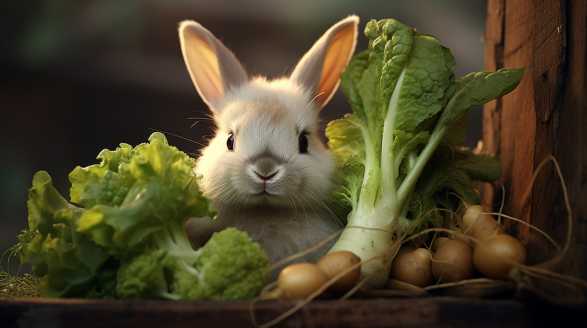
I never thought I would find myself writing an article about rabbit nutrition, let alone the topic of feeding turnips to these adorable little creatures. But hey, that’s the beauty of life – we often stumble upon curious questions that lead us down unexpected paths.
Why Turnips?
Before we look into serving sizes, let’s briefly touch upon why turnips can be a healthy addition to your rabbit’s diet. Turnips are a root vegetable that contains essential vitamins, minerals, and dietary fiber.
While moderately high in carbohydrates, turnips are relatively low in calories compared to other root vegetables. Additionally, they are rich in vitamin C, which is essential for a rabbit’s overall health and immune system.
The Importance of Serving Size
When it comes to feeding your rabbit any kind of food, be it pellets, hay, or vegetables, serving size matters. Rabbits have unique dietary requirements, and it’s crucial to strike a balance to ensure their well-being and prevent various health issues.
Understanding Your Rabbit’s Size
The serving size of turnips for your rabbit largely depends on their size and weight. Rabbits come in different breeds and sizes, ranging from small to large.
Small Breed Rabbits
If you have a small breed rabbit, such as a Netherland Dwarf or a Mini Lop, the turnip serving size should be proportionate to their petite physique. Aim for half a tablespoon of turnip per pound of body weight.
For example, if your rabbit weighs 2 pounds, the recommended serving size would be approximately 1 tablespoon of turnip per day.
Medium Breed Rabbits
For medium breed rabbits like the Dutch or Holland Lop, you can slightly increase the serving size compared to their smaller counterparts. A rough guideline is one tablespoon of turnip per pound of body weight.
So, if your delightful Dutch bunny weighs 4 pounds, you should offer around 4 tablespoons of turnip each day.
Large Breed Rabbits
Finally, if you have a large breed rabbit, such as a Flemish Giant or a French Lop, their serving size can be slightly larger. Aim for one and a half tablespoons of turnip per pound of body weight.
For instance, if you are lucky enough to care for a majestic Flemish Giant weighing 10 pounds, you should provide approximately 15 tablespoons of turnip daily.
Introducing Turnips: Proceed with Caution
While turnips can be a valuable addition to your rabbit’s diet, it’s important to introduce them gradually. Rabbits have sensitive digestive systems, and sudden changes in their diet can lead to digestive upset or even more severe issues like gastrointestinal stasis.
To introduce turnips safely, follow these steps:
- Step 1: Start by offering a small piece of turnip, about half an inch in size, as a treat. Observe your rabbit’s reaction, ensuring they don’t show any signs of discomfort or digestive disturbance.
- Step 2: If your rabbit tolerates the initial treat, include a few small slices of turnip in their regular vegetable rotation, offering them once every other day.
- Step 3: Monitor your rabbit closely for any adverse reactions, such as diarrhea or decreased appetite. If all goes well, and your rabbit enjoys turnips without any issues, you can increase the serving size gradually.
Remember, each rabbit is unique, so observing their individual reaction is essential. Monitor their health and adjust accordingly.
Additional Considerations
When feeding your rabbit turnips or any vegetable:
- Variety is key: While turnips offer nutritional benefits, it’s vital to provide a well-rounded diet. Offer a mix of vegetables, such as leafy greens, herbs, and other rabbit-safe veggies, to ensure your furry friend receives a balanced nutritional intake.
- Moderation is essential: Even though turnips are safe for rabbits, it’s crucial to moderate the serving size. Relying solely on turnips as a primary food source neglects other necessary components of a rabbit’s diet, such as hay and pellets.
- Consult a veterinarian: If you have any concerns about your rabbit’s diet or health, it’s always best to consult a rabbit-savvy veterinarian. They will provide you with specific guidance tailored to your rabbit’s individual needs.
Who would have thought that turnips could be such a rabbit-entric topic? In this quirky adventure, we explored the appropriate serving size of turnips for rabbits of different sizes and breeds.
So, next time you find yourself contemplating the serving size of a turnip for your rabbit, rest assured that you’re not alone in this perplexing journey. These adorable creatures rely on us to make the best choices for their well-being, and understanding their nutritional needs is a crucial part of being a responsible rabbit parent.
How to Properly Introduce Turnips into Your Rabbit’s Diet
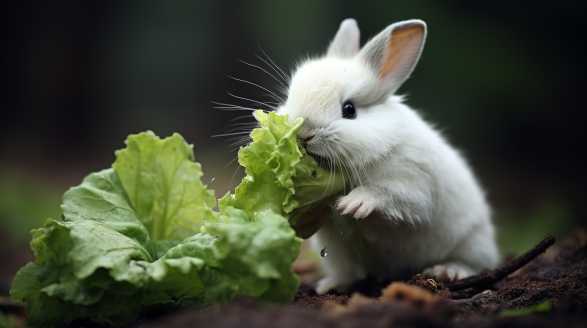
As a dedicated rabbit owner, I always strive to provide my furry friend with a nutritious and varied diet. While hay and pellets are essential for their well-being, incorporating fresh vegetables can add an extra boost of vitamins and minerals.
However, it’s crucial to follow some guidelines to ensure a smooth transition and maintain your rabbit’s health. I will share my insights, tips, and tricks on how to properly introduce turnips into your rabbit’s diet.
Why Consider Turnips for Your Rabbit?
Turnips are nutrient-rich root vegetables that can provide various health benefits for your bunny companion. They are low in calories and contain essential vitamins such as vitamin C, vitamin K, and several B vitamins.
Introducing Turnips Slowly and Safely
Before jumping right into adding turnips to your rabbit’s diet, it’s essential to remember that rabbits have sensitive digestive systems. Any sudden change in their diet can lead to gastrointestinal issues.
Step 1: Consult Your Veterinarian
Before making any changes to your rabbit’s diet, it’s always best to consult with a rabbit-savvy veterinarian. They can provide personalized guidance and assess whether turnips are suitable for your rabbit, considering any pre-existing health conditions.
Step 2: Choose Fresh and Organic Turnips
When selecting turnips for your rabbit, opt for fresh, organic options. It’s crucial to ensure they haven’t been treated with any pesticides or chemicals that could harm your bunny.
Step 3: Start with Small Quantities
To avoid digestive upset, start by introducing turnips in small quantities. A few thin slices or small chunks are sufficient for the initial introduction.
Step 4: Monitor Your Rabbit’s Reaction
After feeding your rabbit some turnips for the first time, pay close attention to their behavior and digestive health. If you notice any adverse reactions such as diarrhea, soft stools, or loss of appetite, immediately remove turnips from their diet and consult your veterinarian.
Step 5: Gradually Increase the Amount
If your rabbit enjoys turnips and shows no negative reactions, you can gradually increase the portion size. However, remember to do so slowly and in moderation.
Step 6: Proper Preparation and Serving
Before serving turnips to your rabbit, ensure they are properly washed. Cut the root vegetable into small, manageable pieces to prevent any choking hazards.
Serve them at room temperature, and remove any uneaten portions after a few hours to prevent spoilage.
Step 7: Variety is Key
While turnips can be a healthy addition to your rabbit’s diet, it’s important not to solely rely on them. Rabbits require a varied diet to obtain all the necessary nutrients.
Turnip Health Benefits and Possible Concerns
Health Benefits:
- Rich in vitamins C, K, and B vitamins.
- Excellent source of dietary fiber.
- Promotes healthy digestion and gastrointestinal health.
Concerns:
- High oxalate content: Turnips contain oxalates, which in large quantities, can cause calcium imbalances and contribute to the formation of bladder and kidney stones. Feeding turnips in moderation and alongside a balanced diet can help mitigate this risk.
A List of Rabbit-Safe Vegetables
In addition to turnips, several vegetables are safe and nutritious for rabbits to enjoy. Here is a list of rabbit-safe vegetables you can incorporate into their diet:
- Leafy greens (kale, romaine lettuce, spinach)
- Carrots
- Bell peppers
- Broccoli
- Brussels sprouts
- Cilantro
- Dill
- Parsnip
Including turnips in your rabbit’s diet can diversify their meals while providing essential nutrients for their well-being. However, it’s crucial to introduce turnips gradually and monitor your rabbit’s reaction.
By following these guidelines and consulting with a veterinarian, you can safely and properly introduce turnips into your rabbit’s diet, contributing to their overall health and happiness.
The Connection Between Turnip Allergies and Rabbits: What to Look Out For
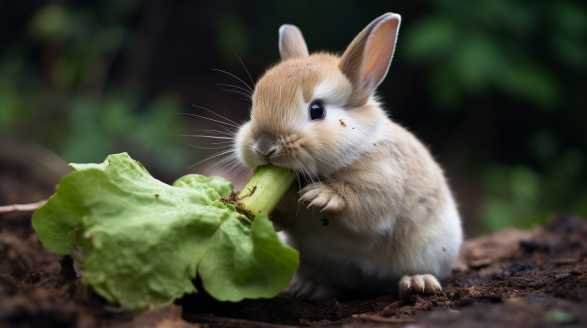
As a rabbit enthusiast and avid gardener, I have always been fascinated by the intricate relationship between rabbits and certain types of plants. One particular topic that has piqued my interest is the connection between turnip allergies and rabbits.
The Basics of Turnip Allergies
When it comes to allergies in rabbits, turnips can be a potential culprit. Rabbits, like humans and many other animals, can develop sensitivities to certain foods, and turnips are no exception.
Common Symptoms
- Digestive Issues: One of the most common symptoms of turnip allergies in rabbits is digestive upset. This can include diarrhea, bloating, gas, and overall digestive discomfort.
- Skin Irritation: Rabbits experiencing turnip allergies may exhibit skin itching, redness, or even develop rashes. These irritations can cause the rabbit to scratch excessively, leading to open wounds and potential infections.
- Respiratory Problems: In some cases, turnip allergies can also affect the respiratory system of rabbits. Labored breathing, wheezing, sneezing, or nasal discharge may be present.
- General Malaise: Allergic rabbits may display signs of lethargy, reduced appetite, or decreased activity levels. These general symptoms are often an indicator that something is not right with your bunny.
Identifying the Connection
Recognizing the connection between turnips and allergies in rabbits can be challenging. It is essential to note that not all rabbits will develop an allergy to turnips, as sensitivities can vary from one individual to another.
Managing Turnip Allergies in Rabbits
If you suspect that your rabbit is allergic to turnips, there are several steps you can take to manage the situation and alleviate their discomfort. Here are some strategies to consider:
1. Remove the Allergen
The most straightforward approach is to remove turnips from your rabbit’s diet and living area. Replace turnips with other rabbit-friendly vegetables that do not cause allergic reactions.
2. Consult a Vet
If your rabbit’s symptoms persist or worsen after eliminating turnips, it is crucial to consult a veterinarian. A professional will be able to provide a proper diagnosis, rule out other underlying health conditions, and suggest appropriate treatment options.
3. Introduce Slowly & Observe
If you still wish to include turnips in your rabbit’s diet, proceed with caution. Introduce turnips gradually and monitor your rabbit closely for any signs of allergic reactions.
Preventing Turnip Allergies
Prevention is always better than cure, especially when it comes to allergies in rabbits. While not all rabbits are predisposed to turnip allergies, it is still important to take precautions.
1. Diversify Your Rabbit’s Diet
A varied diet is the key to ensuring a healthy and well-nourished rabbit. By offering a wide range of fruits, vegetables, and hay, you decrease the likelihood of your rabbit developing allergies to a specific food item, such as turnips.
2. Avoid Potential Irritants
Aside from turnips, rabbits can also develop allergies to other plants or environmental factors. Keep an eye out for signs of discomfort when introducing new vegetation, bedding, or cleaning products within your rabbit’s environment.
3. Regular Vet Check-ups
Maintaining regular veterinary check-ups is an essential part of your rabbit’s overall wellbeing. These visits provide an opportunity for your veterinarian to detect any potential allergies early on and provide advice on proper care, nutrition, and allergen management.
While the connection between turnip allergies and rabbits may seem perplexing, many rabbits can indeed develop sensitivities to turnips. By recognizing the symptoms, managing the allergies, and taking preventative measures, you can ensure the health and happiness of your furry friend.
Are Organic Turnips Better for Rabbits? Pros and Cons
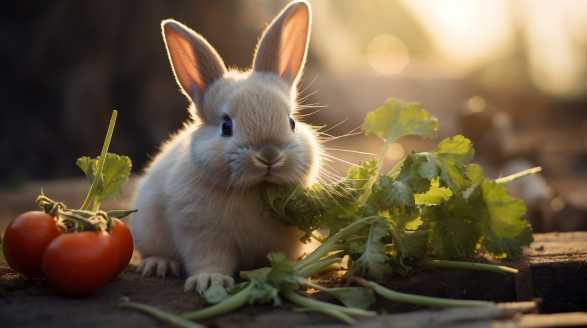
When it comes to feeding our furry little friends, rabbits, we want nothing but the best for them. As a rabbit owner, I understand the importance of providing a nutritious and balanced diet.
Let’s dive into the pros and cons of incorporating organic turnips into your rabbit’s diet.
Pros of Feeding Organic Turnips to Rabbits:
- Nutritional Benefits:
- Organic turnips are rich in various vitamins, including vitamin C, which is essential for the overall health of rabbits.
- These root vegetables are also a great source of dietary fiber, aiding in proper digestion and preventing issues like gastrointestinal stasis in rabbits.
- The presence of minerals such as potassium and magnesium helps in maintaining healthy bones and teeth.
- Natural Variation:
- Organic turnips often have a more complex taste and aroma than their conventionally grown counterparts.
- The natural variation in organic produce can stimulate your rabbit’s appetite, making mealtime more enjoyable for them.
- Chemical-free:
- One of the significant advantages of organic turnips is that they are grown without the use of synthetic pesticides, herbicides, or fertilizers.
- By opting for organic, you can reduce your rabbit’s exposure to potentially harmful chemicals that may be present in conventionally grown turnips.
- Environmental Impact:
- Supporting organic farming practices can have a positive impact on the environment as it promotes biodiversity and minimizes soil and water pollution.
- Aids Dental Health:
- The fibrous nature of turnips promotes good dental health in rabbits by naturally wearing down their continuously growing teeth.
- Chewing on turnips helps prevent dental problems such as overgrown teeth or malocclusion.
Cons of Feeding Organic Turnips to Rabbits:
- Cost:
- Organic turnips are often more expensive than conventionally grown ones due to the meticulous farming methods used.
- If you have multiple rabbits or a limited budget, incorporating organic turnips into their diet may not be financially feasible.
- Availability:
- Organic produce can sometimes be challenging to find, especially depending on your location.
- Limited availability may make it difficult to provide organic turnips consistently as part of your rabbit’s diet.
- Preference:
- Rabbits, like humans, have individual tastes and preferences.
- Some rabbits may not enjoy the taste of turnips or may have aversions to specific organic varieties, limiting their dietary options.
- Storage and Shelf Life:
- Organic turnips, being free from preservatives, may have a shorter shelf life than conventionally grown ones.
- Proper storage techniques, such as storing in cool, dark places and avoiding moisture, are necessary to prevent spoilage.
- Allergies and Sensitivities:
- While rare, some rabbits may have allergies or sensitivities to specific organic turnips or substances in the soil they were grown in.
- Introduce new foods gradually and monitor your rabbit for any signs of adverse reactions, such as diarrhea or allergic symptoms.
Incorporating organic turnips into your rabbit’s diet can offer several benefits, including increased nutritional value, environmental sustainability, and dental health. However, it is essential to consider factors such as cost, availability, and your rabbit’s preferences before making the switch.
Remember to consult with a veterinarian who specializes in rabbit care for personalized advice tailored to your rabbit’s specific dietary needs.
Can Turnips Cause Digestive Issues in Rabbits? Common Concerns Explained
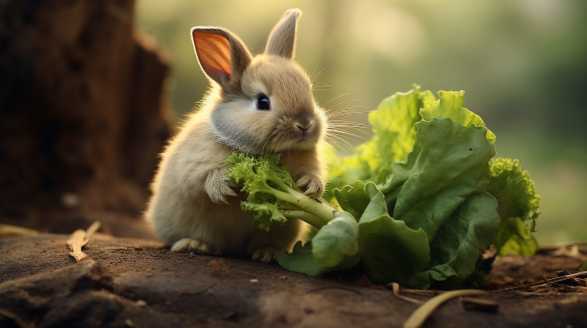
As a rabbit owner, it’s essential to carefully choose what foods to include in your furry friend’s diet. Among the many questions that may arise, one common concern is whether turnips can cause digestive issues in rabbits.
Understanding the Rabbit Digestive System
Before delving into the potential effects of turnips on a rabbit’s digestive system, it’s crucial to understand how their system works. Rabbits are herbivores, which means their digestive tract is specifically designed to process plant-based foods.
The rabbit’s digestive system is unique and consists of a large, fermentative cecum placed between the small and large intestine. The cecum is responsible for breaking down fibrous plant material, such as hay and grass, into essential nutrients.
The Role of Diet in Rabbit Health
Maintaining a balanced diet is paramount for the overall health and well-being of a rabbit. A proper diet is crucial to prevent digestive issues, as well as other health problems, such as obesity, dental disease, and malnutrition.
The ideal diet for rabbits mainly consists of hay, fresh vegetables, and clean water. While hay should make up the majority of their diet, vegetables contribute to a well-rounded nutritional intake.
The Nutritional Profile of Turnips
To ascertain whether turnips can cause digestive issues in rabbits, it’s important to consider their nutritional composition. Here’s a breakdown of the nutritional values in turnips:
- Calories: A medium-sized turnip contains approximately 34 calories.
- Fiber: Turnips are a great source of dietary fiber, providing about 2 grams per serving.
- Vitamins: They are rich in vitamins A, C, K, E, and various B vitamins.
- Minerals: Turnips contain minerals like potassium, calcium, iron, and magnesium.
Potential Digestive Issues
While turnips can be a nutritious addition to a rabbit’s diet, they do have the potential to cause digestive issues if not given in moderation. Here are some common concerns associated with turnips in rabbits:
1. Gas and Bloating
Turnips are known to be gas-producing vegetables, which can lead to bloating and discomfort in rabbits. Excessive gas build-up can cause pain and even lead to more severe conditions like gastrointestinal stasis.
2. Diarrhea
Excessive consumption of turnips may also result in diarrhea in rabbits. This happens when the rabbit’s digestive system has difficulty processing the high fiber content present in turnips.
3. Nutrient Imbalance
While turnips offer various nutrients, relying solely on them as a primary food source can lead to nutrient imbalances. Rabbits need a diverse diet to obtain all necessary vitamins and minerals.
Feeding Guidelines
To ensure your rabbit’s well-being, we provide some feeding guidelines when it comes to turnips:
- Moderation is key: Offer turnips as a treat in small portions, rather than a staple food.
- Introduce gradually: Introduce turnips slowly to your rabbit’s diet, allowing their digestive system to adjust.
- Monitor stool consistency: Pay close attention to your rabbit’s droppings for any signs of diarrhea or abnormality.
- Observe behavior: Look out for any signs of discomfort, bloating, or gas after introducing turnips. If observed, reduce or eliminate turnips from the diet.
- Varied diet: Remember, turnips should not be the main component of your rabbit’s diet. Ensure a balanced diet with a variety of vegetables, hay, and water.
While turnips can be a beneficial addition to a rabbit’s diet, it’s important to be cautious and mindful of the quantity and their effects. Gas, bloating, diarrhea, and nutrient imbalances are some possible concerns associating turnips with rabbit digestive issues.
Always consult with a veterinarian for specific advice concerning your rabbit’s dietary needs and individual health conditions.
Is It Safe for Baby Rabbits to Eat Turnips? What You Should Know
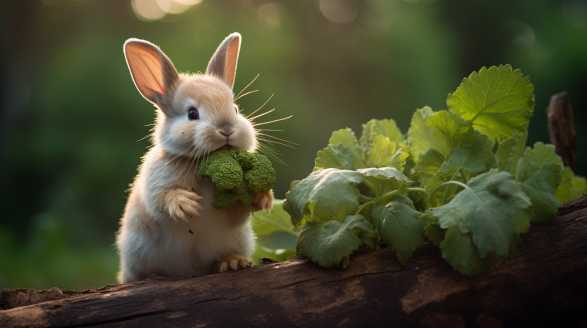
As a rabbit enthusiast, I’ve always been keen on providing the best diet for my furry friends. When it comes to baby rabbits, it’s crucial to be extra cautious with their food choices.
I will dive into the topic and provide you with all the relevant information you need to know.
Understanding the Nutritional Value of Turnips
Before we can determine whether turnips are suitable for baby rabbits, let’s examine their nutritional composition. Turnips are a root vegetable that contains various essential nutrients, including:
- Vitamin C: This vitamin helps boost the immune system and keep the rabbit healthy.
- Fiber: Turnips are rich in dietary fiber, which aids in digestion and promotes overall gut health.
- Calcium: Calcium is crucial for strong bones and teeth, which is especially important for young rabbits.
- Potassium: This mineral helps regulate fluid balance and support proper muscle function.
- Vitamin K: Turnips also provide vitamin K, which is vital for blood clotting and bone health.
Can Baby Rabbits Safely Consume Turnips?
While turnips do offer valuable nutrients, it’s important to consider their suitability for baby rabbits. Here are some factors to take into account:
1. Digestive System Immaturity
Baby rabbits have delicate digestive systems that undergo maturation during their first few weeks of life. Introducing new foods too early can cause digestive upset and potentially harm their overall health.
2. Intestinal Discomfort
Turnips, like many other cruciferous vegetables, can sometimes cause gas and bloating in rabbits. Baby rabbits are particularly vulnerable to these digestive issues, as their intestinal systems are still developing.
Best Practices for Introducing Turnips to Baby Rabbits
If you decide to feed your young rabbits turnips, it’s crucial to follow these best practices to ensure their safety and well-being:
1. Age Matters
Wait until your baby rabbits are at least three months old before introducing turnips. This allows their digestive system to mature sufficiently, minimizing the risk of digestive problems.
2. Start Small
Begin by offering a small amount of turnip to your baby rabbits and monitor their response carefully. If they show any signs of discomfort, such as diarrhea or bloating, discontinue feeding turnips immediately.
Gradually increase the amount of turnip in your baby rabbits’ diet over several days. This gradual introduction allows their digestive systems to adapt to the new food, reducing the likelihood of any adverse reactions.
4. Monitor for Allergic Reactions
Just like humans, rabbits can also have allergies. Keep a close eye on your baby rabbits for any signs of allergic reactions, such as itching, swelling, or difficulty breathing.
5. Moderation is Key
While turnips can offer several beneficial nutrients, it’s crucial to provide a balanced diet to your baby rabbits. Turnips should be only a part of their overall food intake, and other essential foods such as hay and pellets should still form the majority of their diet.
Alternative Vegetables for Baby Rabbits
If you are unsure about feeding your baby rabbits turnips, there are several alternative vegetables that are generally considered safe and suitable for their young digestive systems. Some of these options include:
- Carrots
- Broccoli
- Cabbage
- Dark leafy greens (i.e., kale, spinach, romaine lettuce)
These vegetables provide similar nutritional benefits to turnips and are usually well-tolerated by baby rabbits when introduced correctly.
While turnips do offer valuable nutrients, it’s important to exercise caution when feeding them to baby rabbits. Their delicate digestive systems require time to mature, and introducing new foods too early can potentially cause digestive issues.
Finally, always prioritize a well-balanced diet with hay and pellets as the foundation for your baby rabbits’ nutritional needs.
Turnip Leaves or Turnip Bulbs: Which Part is Healthier for Rabbits?
When it comes to feeding our furry friends, it’s essential to provide them with a balanced and nutritious diet. Rabbits, in particular, have specific dietary requirements to ensure their overall health and wellbeing.
Should you feed your rabbit the leaves or the bulbs? Join me as we dive into the world of turnips and determine the healthier option for our beloved bunnies.
The Versatility of Turnips
Turnips (Brassica rapa) are root vegetables that belong to the Brassicaceae family. They are known for their crisp texture, slightly sweet taste, and nutritional value.
They also contain fiber, which aids in digestion.
Rabbits can safely consume turnips, but it’s important to understand the differences between the leaves and bulbs to make an informed decision regarding their diet.
The Nutritional Value of Turnip Leaves
Turnip leaves, also known as turnip greens, are the edible green leaves attached to the turnip bulb. They possess a unique set of nutritional benefits that can greatly contribute to a rabbit’s diet.
- High Fiber Content: Turnip leaves are an excellent source of dietary fiber, which aids in maintaining a healthy digestive system for rabbits.
- Vitamin-Rich: These greens are packed with essential vitamins, including vitamin A, which promotes good eyesight, and vitamin C, which strengthens the immune system.
- Minerals Galore: Turnip leaves contain a wide range of minerals beneficial for rabbits, such as potassium, calcium, and iron. These minerals contribute to overall bone health and provide energy.
- Low-Calorie: If you’re concerned about your rabbit’s weight, turnip leaves are a great option as they are low in calories and can help maintain a healthy weight.
Turnip Bulbs: An Alternative Approach
While turnip leaves are undeniably a powerhouse of nutrients, turnip bulbs should not be overlooked. Here are some reasons why turnip bulbs can also positively impact a rabbit’s diet:
- Moderate Fiber: Though not as high in fiber as the leaves, turnip bulbs still contain a moderate amount, aiding in digestion and preventing gastrointestinal issues.
- Vitamin Boost: Turnip bulbs may not be as vitamin-rich as the leaves, but they do contain notable amounts of vitamins C and K, further promoting a healthy immune system and blood clotting process.
- Hydration: Turnip bulbs have a higher water content than the leaves, contributing to a rabbit’s hydration levels. This can be particularly beneficial during hot weather or for rabbits prone to dehydration.
- Appetite Variation: Including turnip bulbs in your rabbit’s diet provides a diverse range of flavors and textures, preventing boredom and encouraging healthy eating habits.
Finding the Balance
Now that we’ve explored the nutritional benefits of both turnip leaves and bulbs, it’s crucial to strike a balance in your rabbit’s diet. Rabbits require a mix of fresh vegetables, hay, and pellets to ensure they receive all the necessary nutrients.
- Moderation is Key: As with any new food, introduce turnips gradually to your rabbit’s diet. Start with small portions and observe any adverse reactions.
- Leafy Greens Take Priority: Aim to offer turnip leaves more frequently than the bulbs. The leaves are richer in vitamins and fiber, ensuring your rabbit receives the essential nutrients they need.
- Variety is Essential: Although turnip greens should play a prominent role, it’s crucial to introduce other leafy greens, such as kale, spinach, and romaine lettuce, to provide a well-rounded diet.
- Organic and Rinsed Produce: When feeding turnip leaves or bulbs to your rabbit, always opt for organic produce to minimize exposure to harmful pesticides. Thoroughly rinse them before serving.
While both turnip leaves and bulbs offer distinct nutritional benefits to rabbits, it’s clear that the leaves outweigh the bulbs in terms of overall health benefits. Turnip leaves provide higher fiber content, essential vitamins, and a wider range of minerals.
Remember to introduce turnips gradually and seek veterinary advice if you notice any adverse reactions. By prioritizing your rabbit’s health through their diet, you are providing them with a happy and fulfilling life.
The Dos and Don’ts: Feeding Turnip Greens to Rabbits
Hey there, fellow rabbit enthusiasts! If you’re wondering whether it’s safe to feed turnip greens to your adorable furry friend, I’ve got you covered.
we’ll explore the dos and don’ts of feeding turnip greens to rabbits, ensuring their health and happiness. Let’s hop right into it, shall we?
Why Consider Turnip Greens?
Turnip greens are not only delicious but also packed with essential nutrients that can benefit your rabbit’s well-being. Here are some reasons why turnip greens make a great addition to their diet:
- Nutritional Value: Turnip greens are loaded with vitamins A, K, and C, as well as minerals like calcium, potassium, and folate. These nutrients contribute to a well-rounded diet and promote good overall health for your furry friend.
- Dietary Fiber: Fiber is crucial for a rabbit’s digestive system. Consuming turnip greens can provide the necessary fiber to maintain healthy gut function and prevent gastrointestinal issues such as hairballs and stasis.
- Variety in Diet: Rabbits thrive on a diverse diet, and turnip greens can add variety to their meals. It’s always beneficial to provide a range of different leafy greens to keep your bunny interested and engaged with their food.
The Dos:
When it comes to feeding turnip greens to your rabbits, follow these dos for a safe and enjoyable experience:
- Introduce Gradually: Just like humans, rabbits need some time to adjust to new foods. Start by offering a small amount of turnip greens as an occasional treat to see how your bunny reacts. If they show no signs of digestive distress, you can gradually increase the portion size.
- Offer Fresh and Organic: Always choose fresh and organic turnip greens to ensure the highest quality for your rabbit. Avoid wilted or spoiled greens as they may upset their sensitive digestive system.
- Wash Thoroughly: Before feeding turnip greens to your furry friend, make sure to wash them thoroughly to remove any dirt, pesticides, or residues. This extra step guarantees the safety of the greens and keeps your rabbit free from potential harmful substances.
- Serve in Moderation: While turnip greens offer a wealth of nutrients, they shouldn’t make up the majority of your rabbit’s diet. Treat turnip greens as a supplement rather than a staple, offering them alongside a balanced assortment of hay, pellets, and other leafy greens.
- Observe Your Rabbit: Keep a close eye on your rabbit after introducing turnip greens to their diet. Monitor their stool consistency, appetite, and behavior. If you notice any adverse effects, such as diarrhea or decreased food intake, consult with a rabbit-savvy veterinarian.
The Don’ts:
To ensure the well-being of your bunny, it’s essential to avoid these common pitfalls when it comes to feeding turnip greens:
- Overfeeding: While turnip greens are beneficial, overfeeding can upset your rabbit’s delicate digestive system. Stick to small portion sizes and maintain a balanced diet to prevent any potential health issues.
- Feeding Unwashed Greens: Neglecting to wash turnip greens properly can expose your rabbit to harmful pesticides or contaminants. Always wash thoroughly to protect their health.
- Forcing Consumption: Some rabbits may not have an immediate liking for turnip greens. Don’t force them to eat it. Instead, provide a variety of other leafy greens, and eventually, they might develop a taste for it on their own.
- Ignoring Allergies or Sensitivities: Just like humans, rabbits can have allergies or sensitivities to certain foods. If you notice any allergic reactions, such as excessive scratching or sneezing, discontinue the use of turnip greens and seek professional advice.
Turnip greens can be a fantastic addition to your rabbit’s diet, providing essential nutrients, dietary fiber, and variety. Remember to introduce turnip greens gradually, serve them fresh and organic, wash them thoroughly, and observe your rabbit’s reaction.
By following these dos and don’ts, you’ll be ensuring a healthy and happy rabbit companion for years to come. Hoppy feeding!
Conclusion
In conclusion, turnips are an excellent addition to a rabbit’s diet, offering a wealth of nutritional benefits. From vitamin C to fiber, these root vegetables can contribute to your furry friend’s overall health and well-being.
When feeding turnips to rabbits, it’s important to start with small quantities and observe how your rabbit reacts. Gradually increase the serving size if they tolerate it well.
Additionally, it’s crucial to keep an eye on your rabbit’s digestion, behavior, and overall health to ensure they are benefiting from the turnips and not experiencing any adverse effects.
While turnips can provide numerous nutritional benefits, it’s crucial not to overfeed or introduce them too quickly. Moderation and a balanced diet are key to keeping your rabbit healthy.
Lastly, variety is essential in a rabbit’s diet. While turnips offer great benefits, it’s crucial to provide a mix of different vegetables to ensure a well-rounded nutritional intake.
However, both can be incorporated into their diet in moderation.
Feeding turnips to your rabbit can be a rewarding and healthy experience when done correctly. By following the guidelines, monitoring your rabbit’s response, and offering a balanced diet, you can provide your furry friend with the nutritional benefits of turnips while keeping them happy and thriving.
Frequently Asked Questions
Can rabbits eat turnip?
Yes, rabbits can eat turnip. It is generally safe and healthy for them to consume in moderate amounts.
Is turnip a good source of nutrition for rabbits?
Turnips are a good source of nutrition for rabbits. They contain essential vitamins and minerals that are beneficial for their overall health.
How should turnip be prepared for rabbits?
Turnip should be washed thoroughly to remove any dirt or pesticides. It can be fed raw, grated, or chopped into small pieces.
Can rabbits eat the turnip greens?
Yes, rabbits can eat turnip greens along with the turnip. The greens are actually quite nutritious and can be a healthy addition to their diet.
How much turnip can rabbits eat?
Turnip should be given as a treat or a supplement to their regular diet. It should not make up more than 10% of a rabbit’s daily food intake to avoid gastrointestinal issues.
Are there any precautions to consider when feeding turnip to rabbits?
While turnip is generally safe for rabbits, it is important to introduce new foods slowly and in small quantities to avoid digestive upset. Observe your rabbit for any signs of allergies or adverse reactions.
What other vegetables are safe for rabbits to eat?
Besides turnips, rabbits can safely eat a variety of vegetables including lettuce, spinach, kale, carrots, celery, and bell peppers. However, always introduce new foods gradually to monitor their tolerance and avoid any potential digestive issues.
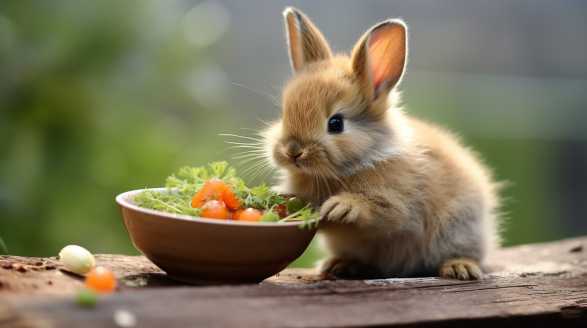
What Can Rabbits Not Eat
Introduction What can rabbits not eat? Have I got a tale to tell you today that will leave you on the edge of your seat! But little did I know that something as innocent as feeding rhubarb to my precious bunny could have such deadly consequences! Buckle up, my friends, because we’re about to dive […]
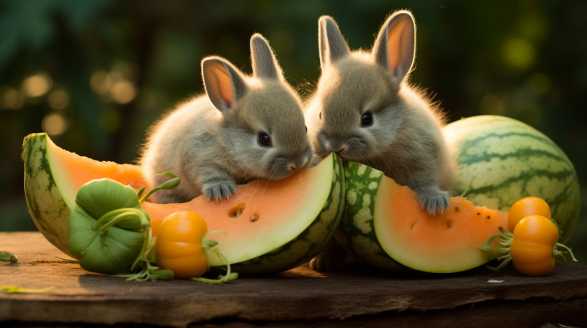
Can Rabbits Eat Honeydew
Introduction Hey there, fellow rabbit aficionados! Are you ready for a hop-tastic journey into the wonderful world of honeydew and its impact on our fluffy friends? Picture this – a warm, sunny day, a happy bunny bounding through the grass, and you, standing there, armed with a juicy slice of honeydew melon. As you reach […]
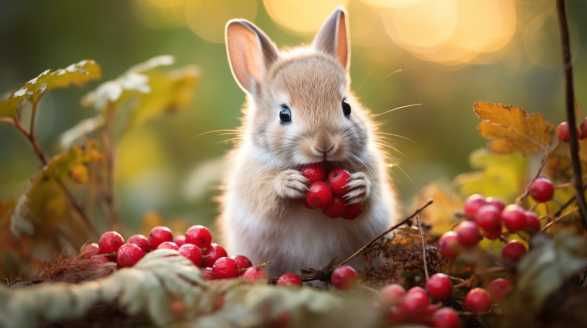
Can Rabbits Eat Cranberries
Introduction Hey there, fellow animal lovers! Today, I want to dive into a fascinating topic that has been on my mind lately. Can Rabbits eat cranberries? Let’s find out Cranberries can actually have some amazing effects on a rabbit’s digestive system. Think about it – cranberries are like little powerhouses of antioxidants. They can enhance […]
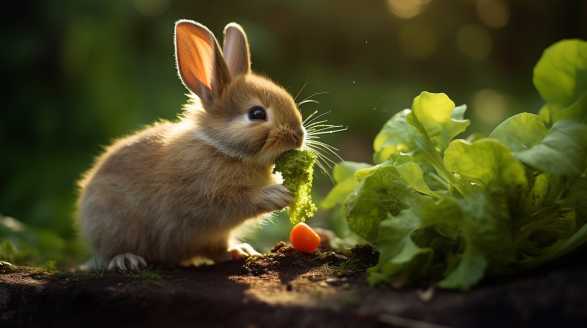
Can Rabbits Eat Lettuce
Introduction Hey there, fellow rabbit lovers! Get ready to hop into a world of leafy goodness as we explore the benefits of lettuce in your furry friend’s diet. Let me tell you, lettuce is not just an ordinary veggie. It’s packed with incredible benefits that can make your rabbit’s tail wag with joy. Oh, and […]
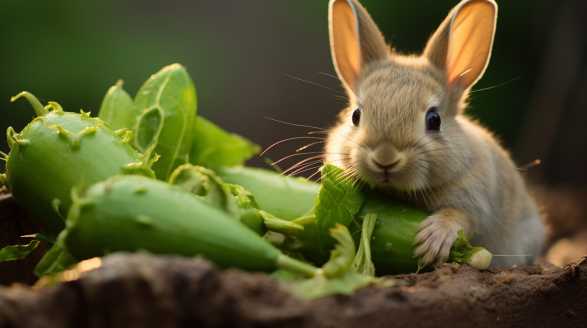
Can Rabbits Eat Okra
Introduction Can Rabbits eat okra? Let’s find out. We’re about to embark on an adventure filled with mysteries, health benefits, and the undeniable allure of okra for our furry friends. Picture this: you’re strolling down the vegetable aisle, and your eyes fall upon the vibrant green pods of okra. You’ve heard whispers about this veggie, […]
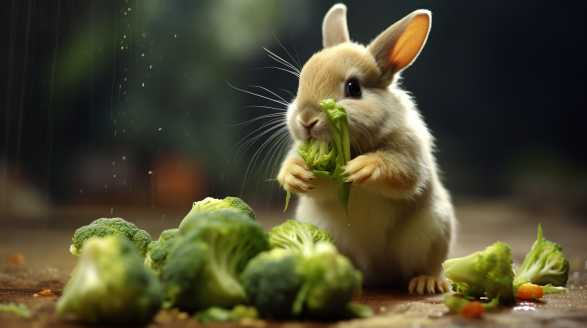
Can Rabbits Eat Brussel Sprouts
Introduction Can Rabbits eat asparagus? Let’s find out.. So let’s dive headfirst into this leafy green adventure together. We’ll explore the abundance of nutrients packed into those miniature cabbages, unravel the potential benefits and risks, and uncover the secrets to safely incorporate Brussel sprouts into your rabbit’s mealtime routine. Get ready for a thrilling ride […]
